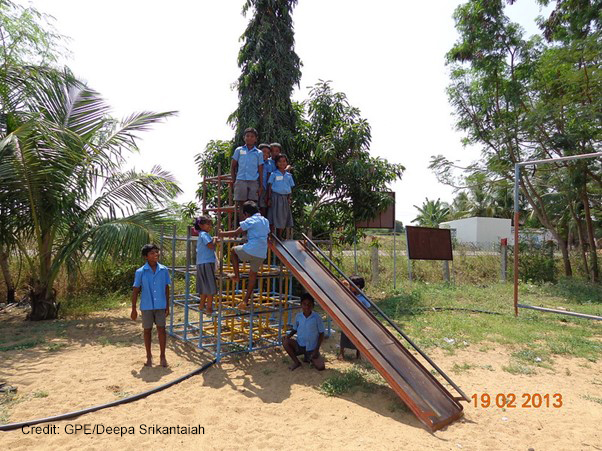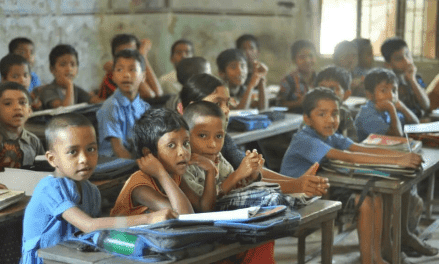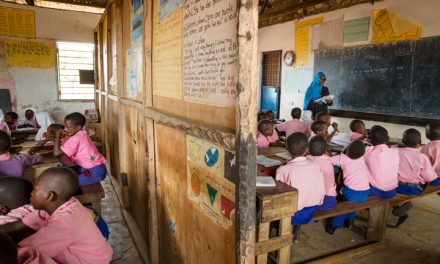This article was written by Mike Douse, independent International Education/TVET Adviser.
This is my sixtieth year in international education. In a West African university in the early-1960s, unthinkingly and unashamedly I presented my students with the information and ideas that I had absorbed during my postgraduate studies in the UK. During my subsequent decade in Australia, including five exhilarating years as foundation Director of the national Disadvantaged Schools Program, I recognised increasingly that fresh and effective educational approaches could emerge locally: for instance, that schools and their communities could, with encouragement and a modicum of financial support, design, own and apply original and successful approaches – and reflect upon eliminating imperfections and mainstreaming implications.
However, when I met with leaders of the UK’s ‘Educational Priority Areas’ initiative (Halsey, 1974), or what was termed ‘Compensatory Education’ in the USA (Gordon, 1974), I sensed their unwillingness to accept that anything of value could be learned from elsewhere. America’s emphasis was on ‘ethnicity’; Britain’s on ‘socio-economic deprivation’; we in Australia had focussed on locally-led action aimed at making the education in each school serving under-privileged communities more relevant, effective and enjoyable. As I came to realise (and wrote in an internal Schools Commission discussion paper in 1975): “learners who are disadvantaged, in terms of foregone chances and the inequitable distribution of resources, have a right to receive different treatment to foster their potential”. Countries addressing similar ‘educational inequality’ challenges had much to learn from one another but were typically too immersed in their own concerns to do so wholeheartedly.
From the 1980s onwards, apart from a spell as Principal of a West African ‘Science Secondary School’, and another as Head of an Independent School in Wales, I have advised upon, helped implement, and objectively evaluated an exciting variety of educational development programmes. These covered some 60 countries (sometimes as regions, such as SADC, SAARC, Caribbean or Pacific) and were supported by the EU, WB, UNESCO and ILO, and by DfID and AusAid (as they then were), and other anagrammatic agencies – and I am still involved in such work (albeit, due to the pandemic, online only) today. Overall, such ‘development assistance’, technical as well as financial, has contributed massively to teaching and learning, quantitatively and qualitatively, worldwide.
There have been changes. Terms such as ‘partnership’ are frequently utilised. Enabling the beneficiary to (appear to) have some say in to what and how the funds should be applied has been far more apparent. References, common in the 1980s, to the ‘generosity of European taxpayers’ or to the ‘readiness of the British to give aid to the peoples of their former colonies’ are no longer made – and would be regarded as incongruous, if not offensive, were they uttered now. And yet, despite such protocols as the Paris Declaration on Aid Effectiveness articulating goals for an “improved approach that would make it more effective than the inadequate and flawed educational models inherited from colonial times, which continued to be entrenched across the globe”, each development partner still demands that beneficiaries follow its own customised, frequently byzantine, essentially demeaning processes and documentation. It remains ‘their’ funding and ‘their’ expertise which, out of the goodness of their hearts, and as long as their electors show willing, they deign to bestow upon the underprivileged.
It is worth reminding ourselves of the origins of the current international donor-partner reality and of the historical factors that underlie all of this much-vaunted philanthropy, alongside the high-minded aspirations. Benevolent nations and warm-hearted billionaires did not acquire their wealth solely through exploiting developing world mineral or agricultural resources, nor through cheap or indeed slave human labour, nor through financial subterfuges and aggressive tax avoidance – just the bulk of it. They are not so placed through their own exceptional talent, hard toil in the heat of the day, or moral superiority. Their fortune is very largely a matter of fortune.
A senior OECD Analyst explains how COVID-19 has shown that “scars from unresolved societal challenges may run deeper than many may have anticipated… inequality… economic polarisation… the persistent belief that the cards we were dealt at birth determine our future”. While it may well be the case that, as she surmises, the pandemic “has also brought with it a new sense of awareness of the strengths and weaknesses of our societies…” (ibid), this emerging consciousness has yet to develop an international dimension. Each in our confining context, we recognise that it is ‘wrong’ and ‘unacceptable’ that those from this leafy suburb perform ‘better’ educationally than those in that deprived area. Similarly, there is concern (and sometimes even action) within particular countries when there are marked disparities between the exam results of, say, blacks as opposed to whites, or of girls as opposed to boys, or between those with and those without disabilities. Yet who of us will, on comparing overall results between, say, Canada, Singapore and Finland on the one hand and, for instance, Somalia, Haiti and Kosovo on the other, become equally indignant and similarly determined decisively to act?
So far, the responses to Covid-19 have been essentially ‘My Nation First’, despite the pandemic being an ongoing universal threat, as evidenced by its alleged origin in the wet markets of Wuhan and the emergence of Omicron in Africa. Similarly, in relation to climate change, the pittance that rich Western nations offer as a gift, rather than as compensation, enables those who have done most to cause this existential catastrophe to position themselves, in true colonial style, as the heroes who will swoop down and rescue the world. Just as stopping slavery failed to stop the gigantic system of trade and exploitation that it had spawned, what has been referred to as “wilful amnesia about the darker side of imperialism” enables Western governments, donor agencies, companies and consultants to further their own financial and ideological interests under the guise of enlightened benevolence. And so it is in development aid generally, and in support for education specifically, where the privileged pose as beneficent donors while acting as Dickensian landlords.
Not only in relation to world health and our planet’s survival is it opportune to think of historical plunder as a source of international rescue. My colleague Dr Philip Uys and I have written extensively, for instance on education’s forthcoming fundamental transformation, made necessary and possible by evolving developments in information and communications, and embodying the contemporary virtual/tangible consciousness duality. Massive transfers of treasure and technology, sufficient to enable all developing countries to emerge soon from education sector aid dependence altogether, would, in addition to being of vast ultimate benefit to the givers as well as the receivers, go some way to righting colossal age-old wrongs. For present purposes, let it be agreed that the ultimate sources of wealth that enables some to give (or to lend) while others need to receive (or to borrow) are, in the main, such that, at the very least, the responsibility for this support – maybe we should call it ‘reparations’ rather than ‘aid’ (à la Monbiot, 2021) – should no longer be with the possessors of that wealth but be handled forthwith by those from whom, historically and culpably, the bulk of it was derived.
Just as no-one on earth is safe from the virus until all have been vaccinated, and just as no location is immune from the consequences of global warming until all authorities in all locations have (been enabled to) take all necessary actions, so also, until educational inequalities of outcome between countries are eliminated, none shall sleep. There is still time for rich nations to stop stockpiling vaccines that they will never use, thereby ensuring that poor countries meet their targets. Similarly, the opportunity for the wealthy world to respond wholeheartedly to global warming challenges still just about exists, although that clock is ticking. And the chance for former colonial powers to pay off some of their historical debt by helping the previously-colonised world eliminate educational disadvantage should be seized as both the right and the self-interested thing to do. Educational technology makes it feasible, our common humanity makes it imperative, six decades has been far too long to wait.





